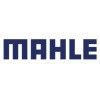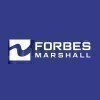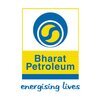Apprentice Engineer
20+ Apprentice Engineer Interview Questions and Answers

Asked in Uttar Pradesh Power Corporation

Q. What is power factor, what types of losses are there in transformer? Etc
Power factor is the ratio of real power to apparent power. Transformer losses include copper losses, core losses, and stray losses.
Power factor is a measure of how efficiently electrical power is being used.
It is the ratio of real power (measured in watts) to apparent power (measured in volt-amperes).
A power factor of 1 indicates that all the power is being used effectively, while a power factor of 0 means that no power is being used effectively.
Transformer losses include cop...read more

Asked in Sunbeam Auto

Q. What are the different types of defects that can occur during material manufacturing?
There are several types of defects in manufacturing materials.
Common types of defects include surface defects, dimensional defects, and material defects.
Surface defects can include scratches, dents, or cracks on the material's surface.
Dimensional defects refer to variations in size, shape, or alignment of the material.
Material defects can include impurities, voids, or improper composition of the material.
Other types of defects may include color variations, warping, or contami...read more
Apprentice Engineer Interview Questions and Answers for Freshers

Asked in MAHLE ANAND Filter Systems

Q. How will you manage the internal team and suppliers?
I will establish clear communication channels and set expectations for both teams.
Establish regular meetings with both teams to discuss progress and address any issues
Set clear goals and expectations for both teams
Encourage collaboration and open communication between teams
Provide feedback and recognition for good performance
Resolve conflicts promptly and fairly
Ensure all parties are aware of project timelines and deadlines
Maintain a positive and professional attitude towards...read more

Asked in Shriram Pistons & Rings

Q. what is engine power and how 4 stroke is more efficient than 2 stroke engine
Engine power is the ability of an engine to do work. A 4-stroke engine is more efficient than a 2-stroke engine due to its better combustion process and reduced fuel consumption.
Engine power refers to the ability of an engine to produce work, typically measured in horsepower or kilowatts.
In a 4-stroke engine, the power is generated over four strokes of the piston: intake, compression, combustion, and exhaust.
The 4-stroke engine has a more efficient combustion process as it al...read more

Asked in Prism Cement - Prism Johnson

Q. What is the difference between Reinforced Cement Concrete (RCC) and Plain Cement Concrete (PCC)?
RCC incorporates steel reinforcement for tensile strength, while PCC is a simple concrete mix without reinforcement.
RCC is used for structures like beams and slabs, while PCC is used for foundations and pavements.
RCC can withstand tensile forces due to steel reinforcement, whereas PCC is weaker in tension.
RCC is more durable and suitable for high-load applications, while PCC is cost-effective for non-structural elements.
Example of RCC: High-rise buildings; Example of PCC: Sid...read more

Asked in Sunbeam Auto

Q. What are the different types of welding?
There are several types of welding, including arc welding, MIG welding, TIG welding, and spot welding.
Arc welding uses an electric arc to create heat and join metals together.
MIG welding uses a wire electrode and a shielding gas to create a weld.
TIG welding uses a tungsten electrode and a filler metal to create a precise and high-quality weld.
Spot welding uses two copper electrodes to apply pressure and heat to join metal sheets together.
Apprentice Engineer Jobs


Asked in Forbes Marshall

Q. You know about vernier caliper? if yes to What
Yes, a vernier caliper is a precision measuring tool used to measure dimensions with high accuracy.
Vernier calipers have a main scale and a sliding vernier scale for more precise measurements.
They can measure internal and external dimensions as well as depth.
Example: A vernier caliper can measure the diameter of a small screw or the thickness of a piece of paper.

Asked in Friends Computers

Q. What is your basic understanding of this job?
Basic knowledge of an Apprentice Engineer includes understanding of engineering principles, technical skills, and safety protocols.
Understanding of engineering principles such as mechanics, thermodynamics, and materials science
Technical skills such as CAD software, programming languages, and machine operation
Knowledge of safety protocols and regulations in the workplace
Ability to read and interpret technical drawings and schematics
Effective communication and teamwork skills
Wi...read more
Share interview questions and help millions of jobseekers 🌟


Asked in Forbes Marshall

Q. What is tolerance and how is it used?
Tolerance is the acceptable range of variation in a measurement or dimension.
Tolerance allows for slight differences in measurements without affecting the overall functionality or quality of a product
It is used in engineering to ensure parts fit together properly and function as intended
Tolerance can be specified as either a plus/minus value or a range of acceptable values
For example, a hole may have a diameter tolerance of +/- 0.1mm, meaning it can vary by up to 0.1mm in eit...read more

Asked in Wonder Cement

Q. What are the different types of cement?
Cement is a crucial construction material with various types tailored for specific applications and environmental conditions.
Ordinary Portland Cement (OPC): Commonly used for general construction.
Portland Pozzolana Cement (PPC): Contains pozzolanic materials, enhancing durability.
Rapid Hardening Cement: Gains strength quickly, ideal for fast-track projects.
Sulphate Resisting Cement: Used in environments with high sulphate exposure.
White Cement: Aesthetic applications, used fo...read more

Asked in Sterlite Technologies

Q. What were your experiences from August 2019 to March 2020?
Worked as an intern at XYZ Company, gained hands-on experience in various engineering tasks.
Assisted senior engineers in designing and testing new products
Participated in team meetings and contributed ideas for process improvement
Learned to use CAD software to create 3D models of components
Helped with assembly and installation of equipment at client sites
Developed skills in troubleshooting and problem-solving
Asked in APM Technologies 3D

Q. What is concentricity?
Concentricity refers to the condition where two or more objects share the same center point.
Concentricity is a geometric property that describes the relationship between multiple objects.
It means that the objects have a common center point.
In engineering, concentricity is often used to ensure accurate alignment and positioning of components.
For example, in a rotating shaft and bearing assembly, the shaft and the inner race of the bearing should be concentric to minimize vibra...read more

Asked in Good Day

Q. What is a pump and why is it used?
A pump is a mechanical device used to move fluids from one place to another.
Pumps are used in various industries such as oil and gas, water treatment, and manufacturing.
They are used to transfer liquids, increase pressure, or circulate fluids in a system.
Examples of pumps include centrifugal pumps, reciprocating pumps, and diaphragm pumps.

Asked in Bharat Petroleum

Q. What is submerged arc welding?
Submerged arc welding is a welding process where the arc is submerged in a layer of granular flux.
The welding process involves a continuously fed electrode
The electrode is covered by a layer of granular flux
The arc is submerged in the flux layer, which melts and forms a protective shield
The process is commonly used for welding thick materials, such as steel plates and pipes

Asked in Technip Energies

Q. How do you finalize the OPOT (Operating Point Optimization Tool) of a column?
Final OPOT of a column can be achieved through proper planning and execution.
Ensure proper alignment and positioning of the column
Check for any defects or damages in the column
Ensure proper reinforcement and formwork
Pour concrete in stages and compact it properly
Allow sufficient time for curing
Perform necessary tests and inspections before finalizing OPOT

Asked in Technip Energies

Q. How do you design an exchanger?
Designing an exchanger involves determining the heat transfer area, fluid flow rates, and selecting appropriate materials.
Determine the heat transfer area required based on the heat duty and the overall heat transfer coefficient.
Calculate the fluid flow rates and pressure drops for both the hot and cold fluids.
Select appropriate materials based on the process conditions and compatibility with the fluids.
Consider factors such as fouling, corrosion, and erosion when designing t...read more

Asked in Havells

Q. What is the difference between an IC and SI engine?
IC engines are internal combustion engines that burn fuel inside the engine, while SI engines are spark ignition engines that use a spark plug to ignite the fuel-air mixture.
IC engines burn fuel inside the engine, while SI engines use a spark plug to ignite the fuel-air mixture
IC engines are commonly used in automobiles, motorcycles, and small aircraft
SI engines are commonly used in cars, trucks, and motorcycles
IC engines have higher power output and torque compared to SI eng...read more

Asked in Jindal Steel and Power

Q. What is an induction motor?
An induction motor is an AC electric motor in which power is supplied to the rotor by means of electromagnetic induction.
Induction motors are commonly used in industrial applications due to their reliability and low maintenance.
They work by inducing a magnetic field in the rotor, which causes it to rotate.
They are more efficient than other types of motors, such as DC motors.
Examples of applications include pumps, fans, and compressors.
They are also used in household appliance...read more

Asked in UltraTech Cement

Q. What are the different types of gears?
Gear is a mechanical device that transmits rotational motion and torque between two or more rotating shafts.
Gears are classified into various types based on their shape, size, and arrangement.
Some common types of gears include spur gears, helical gears, bevel gears, and worm gears.
Spur gears have straight teeth and are used to transmit motion between parallel shafts.
Helical gears have angled teeth and provide smoother and quieter operation compared to spur gears.
Bevel gears h...read more

Asked in RMC SWITCHGEARS

Q. What is a power system?
Power system is a network of electrical components used to generate, transmit and distribute electricity.
Power system includes power generation plants, transmission lines, substations, transformers, and distribution lines.
It is responsible for delivering electricity from power plants to homes, businesses, and industries.
Power system engineers design, operate, and maintain the power system to ensure reliable and efficient electricity supply.
Examples of power systems include th...read more

Asked in Hero MotoCorp

Q. tell me about angular momentum
Angular momentum is the measure of an object's rotational motion.
It is a vector quantity.
It depends on the object's mass, shape, and speed of rotation.
It is conserved in the absence of external torques.
Examples include a spinning top, a rotating planet, and a figure skater performing a spin.

Asked in Hero MotoCorp

Q. tell me about velocity
Velocity is the rate of change of an object's position with respect to time.
Velocity is a vector quantity, meaning it has both magnitude and direction.
It is measured in meters per second (m/s) or kilometers per hour (km/h).
Velocity can be calculated using the formula v = d/t, where v is velocity, d is distance, and t is time.
An object with a constant velocity travels the same distance in the same direction in equal time intervals.
Velocity can also be affected by acceleration,...read more

Asked in Tata Motors

Q. LAWS OF THERMODYNAMICS?
The laws of thermodynamics describe the fundamental principles governing energy and its transformations.
The first law of thermodynamics states that energy cannot be created or destroyed, only transferred or converted.
The second law of thermodynamics states that the entropy of an isolated system always increases over time.
The third law of thermodynamics states that as temperature approaches absolute zero, the entropy of a system approaches a minimum value.
These laws are essent...read more

Asked in Tech Mahindra

Q. What is your current CTC and expected CTC?
I am currently earning X and expecting Y based on my skills and experience.
Mention your current salary and the salary you are expecting
Explain the reasons for expecting the mentioned salary
If possible, provide examples of your achievements that justify the expected salary
Be open to negotiation and discuss the salary range instead of a fixed number
Interview Experiences of Popular Companies








Reviews
Interviews
Salaries
Users

















